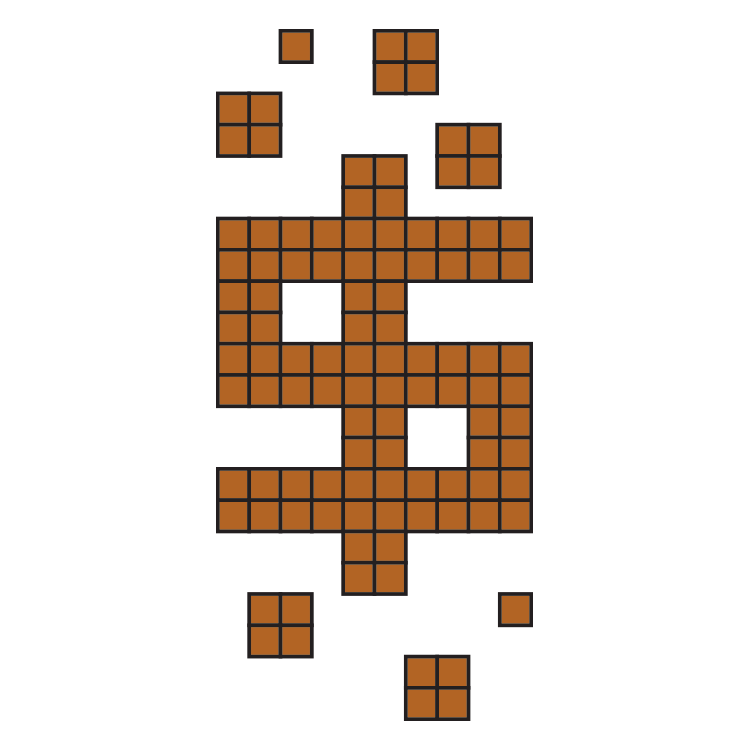[ad_1]
In 2018, Jake Karls co-founded Mid-Day Squares with his sister, Lezlie Karls, and her husband, Nick Saltarelli. The trio wanted to create a modern chocolate bar, replacing the high-sugar snacks of yesteryear with a low-sugar, high-protein plant-based alternative.
Lezlie worked from her condo’s kitchen, whipping up batch after batch of prototypes, until she came up with their first product: a brownie-batter-flavoured square with six grams of protein and four grams of fibre per serving. “Nowadays, kids are eating cleaner,” says Jake. “People have a better understanding of what they should put in their bodies—they want indulgence but with function as well.”
By 2021, the Montreal-based company had 36 employees, a 1,300-square-metre factory, three flavours (Brownie Batter, Almond Crunch and Peanut Butta) and more than $9 million in annual sales. It had recently finished a $4.5-million fundraising round and turned down an acquisition offer from Hershey’s. “It was a fair offer, but we believed we could build something on our own,” says Jake.

But then they hit a bit of a snag. In June of 2021, just months after amiable acquisition talks, Jake and his co-founders received a cease-and-desist letter from Hershey’s. Here’s the gist of it: Mid-Day Squares uses orange packaging for its peanut-butter-flavoured bars, which Hershey’s claimed too closely resembled the branding of its Reese’s products. So, Hershey’s asked Mid-Day Squares to change the colour of its peanut-butter bars—or risk legal action for trademark infringement.
For the young company, it would be incredibly costly to go through litigation. “Our lawyers said that if we fought back in the courts, there was no guarantee we would win,” says Jake. The company argues its shade of orange was not the same as Hershey’s, but to avoid legal complications, Mid-Days Squares altered its packaging and got Hershey’s to sign off.
Afterwards, Mid-Day Squares posted a video on Instagram, explaining the Hershey’s situation and telling consumers why they changed their packaging. “Storytelling is one of our strengths as a company,” says Jake. (The brand has 126,000 followers on Instagram and frequently posts videos about the behind-the- scenes challenges of growing a business.) The video, posted in October 2021, received roughly 1.75 million views between Instagram and TikTok, and the comments were mostly positive: People congratulated them for standing their ground against a big corporation. “People were becoming bigger fans of the brand,” says Jake.
The success of the post gave Jake and his co-founders another idea: What if they made a music video about the packaging fiasco? So, in February 2022, they released “Chocolate Gone Crazy—A Hershey’s Diss Track,” a parody of Eminem’s “My Name Is.” They spent seven months and $70,000 making it, all while running their company. The song featured a verse from each of the founders, introducing themselves and explaining their role in the company. They weren’t worried about Hersey’s responding as they felt the legacy brand wouldn’t know how to react to a “diss track.”
“We wanted to frame it as David and Goliath—small chocolate versus big chocolate,” says Jake. It was a huge success. The video, first released on Jake’s LinkedIn account, received 300,000 views and, much like the first post, a lot of positive public sentiment. To date, the video has about half a million views across YouTube, Facebook, LinkedIn, Instagram and TikTok. (Mid-Day Squares also released a follow-up video on TikTok, explaining why they made the diss track. That video received 1.7 million views.) Publications like TechCrunch and Business Insider took notice of the marketing move, and Forbes covered the legal scuffle, giving Mid-Day Squares plenty of media exposure.
According to Jake, the video helped Mid-Day Squares launch in the United States. “Every two weeks, I’m approached by buyers and investors who mention the video. It’s a gift that keeps on giving,” he says. “I think it resonated because the food-and-beverage industry lacks boldness. This was bold.”

Though Jake says it’s hard to quantify exactly how much the video contributed to the brand’s growth, Mid-Day Squares’ annual revenue shot up from $9 million in the 2021 fiscal year to $15.2 million in 2022. “We built a fan base from it, and those fans turned into customers,” he says.
Now, the company has 62 employees, and its factory produces about 60,000 squares a day. Mid-Day Squares also added a fourth flavour, Cookie Dough, sold alongside its other flavours in 8,000 stores across North America, including Walmart Canada, Target and Whole Foods. Mid-Day Squares is projected to make approximately $30 million in 2023, and Jake recently made the coveted Forbes 30 Under 30 list.
For other companies looking to turn a setback into a success, Jake recommends being transparent with consumers about what’s happening behind the scenes—the good and the bad. “It brings consumers closer to the brand,” he says. “It’s a new way of doing business—using our skill set and social-media team. We weren’t trying to cancel Hershey’s; we’re fans of them. We just had a fun way to share our story—so we did it.”
[ad_2]
Source link
